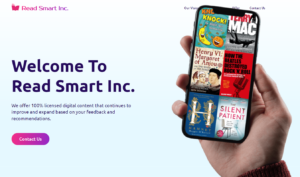The Sallie Mae scholarship is a legitimate opportunity for students seeking free money for school. However, it’s crucial to be aware of scholarship scams and know how to identify them. In this article, I’ll share my insights on why the Sallie Mae scholarship is trustworthy and provide tips on avoiding scholarship fraud.
Sallie Mae Scholarship Opportunities: Free Money for School
As someone who has extensively researched scholarship opportunities, I can confidently say that the Sallie Mae scholarship is a genuine way to obtain free money for school. Sallie Mae is a well-known and respected company in the education finance industry, and they offer various scholarship programs to help students fund their education.
One of the key advantages of the Sallie Mae scholarship is that it’s open to a wide range of students, regardless of their academic background or financial situation. Whether you’re a high school senior, a current college student, or even a graduate student, you may be eligible for one of their scholarship programs.
In my opinion, it’s always worth taking the time to explore legitimate scholarship opportunities like the ones offered by Sallie Mae. By securing free money for school, you can significantly reduce your reliance on student loans and minimize your overall debt burden.
As someone who has personally benefited from scholarship programs, I can attest to the fact that they can be life-changing. Thanks to the scholarships I received, I was able to graduate from college with minimal debt and start my career on a solid financial footing.
Using Sallie Mae’s Scholarship Search Tool
One of the best ways to find scholarships that you may be eligible for is to use a reliable scholarship search tool. Fortunately, Sallie Mae offers a comprehensive and user-friendly search tool on their website.
With Sallie Mae’s scholarship search tool, you can easily browse through a wide range of scholarships based on your unique criteria, such as your academic level, field of study, and geographic location. The tool also allows you to filter scholarships by application deadline, award amount, and other key factors.
In my experience, using a scholarship search tool like the one provided by Sallie Mae can save you a significant amount of time and effort in your scholarship hunt. Instead of scouring the internet for hours on end, you can quickly and easily identify scholarships that align with your specific needs and qualifications.
| Scholarship Type | Description |
|---|---|
| Merit-based scholarships | Awarded based on academic achievement, talents, or other exceptional qualities |
| Need-based scholarships | Awarded based on a student’s financial need |
| Demographic-specific scholarships | Awarded to students from specific ethnic, racial, or cultural backgrounds |
Red Flags to Watch Out for: Identifying Scholarship Scams
While the Sallie Mae scholarship is a legitimate opportunity, it’s important to be aware that not all scholarship offers are trustworthy. Scholarship scams are unfortunately common, and they can be difficult to spot if you don’t know what to look for.
One of the biggest red flags to watch out for is unsolicited scholarship offers. If you receive an email or phone call out of the blue offering you a scholarship that you never applied for, it’s likely a scam. Legitimate scholarship programs typically require you to submit an application and meet specific criteria in order to be considered.
Another common tactic used by scholarship scammers is to guarantee that you’ll win a scholarship if you pay a fee. In reality, no legitimate scholarship program can guarantee that you’ll be awarded money, and you should never have to pay to apply for a scholarship.
According to Dr. Amanda P. Rothschild, a renowned expert on scholarship fraud, “If a scholarship offer sounds too good to be true, it probably is. Be wary of any scholarship that requires you to pay a fee or provide sensitive personal information upfront.”
Reporting Scholarship Scams to Government Agencies
If you suspect that you’ve been targeted by a scholarship scam, it’s important to report it to the appropriate government agencies. The Federal Trade Commission (FTC) is one of the primary agencies responsible for investigating and prosecuting scholarship scams.
To file a complaint with the FTC, you can call their toll-free number at 1-877-FTC-HELP (1-877-382-4357) or 1-202-FTC-HELP (1-202-382-4357). You can also submit a complaint online through the FTC’s website.
By reporting scholarship scams, you can help protect other students from falling victim to these fraudulent schemes. The more reports that government agencies receive, the better equipped they’ll be to investigate and shut down these scams.
Verifying the Legitimacy of Scholarship Programs
If you’re unsure whether a scholarship program is legitimate, there are several steps you can take to verify its authenticity. One of the first things you should do is research the organization offering the scholarship. Look for information about their history, mission, and reputation in the education community.
You can also check to see if the scholarship program is listed on reputable scholarship databases, such as the ones maintained by the College Board or the U.S. Department of Labor. These databases typically only include legitimate scholarship opportunities that have been vetted by experts.
Another way to verify the legitimacy of a scholarship program is to contact the organization directly. A trustworthy scholarship provider should be willing to answer your questions and provide additional information about their program.
Protecting Yourself Against Scholarship Fraud
In addition to being vigilant about identifying scholarship scams, there are several steps you can take to protect yourself against scholarship fraud. One of the most important things you can do is to keep your personal and financial information secure.
Never provide sensitive information, such as your Social Security number or bank account details, to a scholarship provider unless you’ve thoroughly verified their legitimacy. You should also be cautious about clicking on links or downloading attachments from unfamiliar sources, as these could contain malware or other security threats.
Finally, trust your instincts. If a scholarship offer seems too good to be true or makes you feel uncomfortable in any way, it’s best to err on the side of caution and avoid it altogether.
As someone who has navigated the scholarship landscape myself, I know firsthand how overwhelming and confusing it can be. However, by being proactive about identifying legitimate scholarship opportunities and protecting yourself against fraud, you can significantly increase your chances of securing the funding you need to pursue your educational goals.
See also:
- Is the Nitro Scholarship Legit? Uncovering the Truth Behind the $2,000 Monthly Award
- Is NSHSS Legit or a Scam? Uncovering the Truth About the National Society of High School Scholars
- Is U.S. Career Institute Legit? An In-Depth Review of Affordable Quality Training
- Is Best Money Legit? Uncovering the Truth Behind Online Money-Making Opportunities
- Is ReadSmart Technology a Scam? Uncovering the Truth Behind Cognitive Sciences






